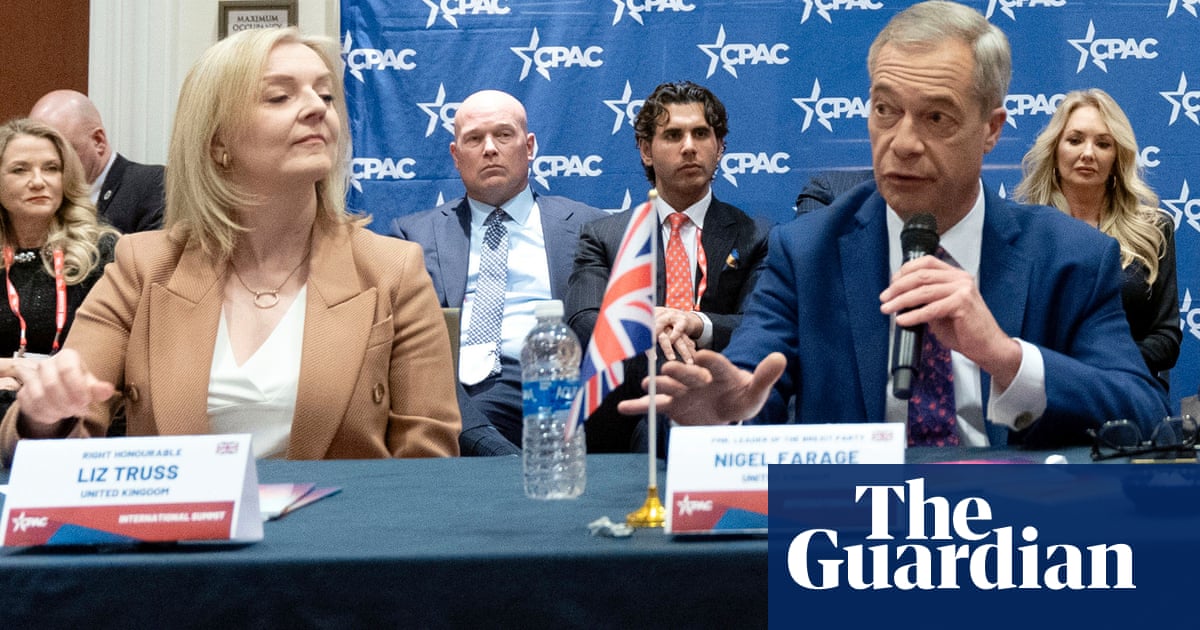The message Zia Yusuf wanted to send was clear. With a backdrop of the City of London behind him, from the 34th floor of the Shard, theReform UKchair laid out an economic policy designed to show his party meant business.
In a briefing over a full English breakfast for some of the nation’s journalists on Friday morning, Yusuf reiterated an announcement the Reform leader, Nigel Farage, had made overnight from another hotel 5,000 miles away in Las Vegas: the party would now acceptdonations in bitcoin, and if elected to power would make tax and regulatory changes to bolster Britain’s adoption of cryptocurrency.
As far as settings go for a press conference, commanding views over St Paul’s Cathedral and the banks and asset managers of the Square Mile, it is straight out of the Westminster playbook, even if the policy idea is pure Donald Trump.
However, the trouble with Yusuf’s message to the City was not the questionable credibility of crypto – viewed with unease at the Bank of England as thewild west of finance– but the party’s broader tax and spending policies.
Riding high in the opinion polls, scrutiny of Reform and its plans for the economy is growing – led this week byan attack from Keir Starmerwho claimed that Farage’s tax and spending policies were grounded in the same “fantasy economics” used to devastating effect by Liz Truss.
The accusation Labour makes is that Yusuf and Farage would spook the City with unfunded tax cuts, sparking a meltdown akin to theill-fated former prime minister’s mini-budget. And despite the posturing from the heights of the Shard, the verdict from many economists is that Starmer could have a point.
Reform has made expansive tax pledges worth at least £60bn – with most of the costs relating to a promise to raise the income tax personal allowance to £20,000 a year, a substantial increase on its current £12,570. Reform has also pledged to increase the threshold for the 40% higher rate of income tax in England from £50,271 to £70,000.
In the argument about whether Reform’s sums add up, Richard Tice, the party’s finance spokesperson, hassuggested most politicians have no idea about the Laffer curve. Named after the US economist Arthur Laffer, it is an illustration of a theory that there are optimal tax rates at which government revenue is maximised.
The idea is that tax cuts could stimulate economic activity, thus bringing in more revenue. While a tax rate of 100% would clearly stop dead economic activity, the idea that tax cuts pay for themselves has also been widely debunked including by Greg Mankiw, the chair of the Council of Economic Advisers under George W Bush, who has described Laffer advocates as “charlatans and cranks”.
Tice acknowledges that there is an “optimum point”, while Yusuf said that in government Reform would prioritise tax cuts “in the right sequential order and make sure that the numbers add up”. Many economists, too, warn tax rises announced by Labour will undermine economic growth.
However, the criticism remains that Reform has mostly promised sweeping tax giveaways without credible corresponding measures to avoid widening the country’s already £100bn-plus budget deficit and £2.7tn debt pile.
Add to this Britain’s low economic growth rate, above-target inflation, elevated national debt and rising borrowing costs for governments around the world linked to investor fears over Donald Trump’s trade war, and the argument is that room for additional borrowing is pretty slim.
After Farage’s welfare pledges this week, the Institute for Fiscal Studies said Reform’s announced fiscal policies so far would cost the exchequer between £60bn and £80bn a year in foregone income and additional outlays. The IFS warned this was not yet balanced by corresponding spending cuts or tax rises elsewhere, which it said would be needed for the plan to be implementable.
Yusuf said Reform’s plans were a work in progress and were liable to change as the party developed its 2029 manifesto. “You shouldn’t just transfer or copy and paste all of that [policies from the 2024 document] into an assumption about what the manifesto would be for the next general election,” he added.
Sign up toBusiness Today
Get set for the working day – we'll point you to all the business news and analysis you need every morning
after newsletter promotion
It could be a fair point given the distance to the next election, and how much the economy is likely to change between now and then. Labour also stands accused of reneging on its early 2024 promises. However, voters may expect better from a putative party of government – especially one trading on public anger at politicians for moving the goalposts.
However, Yusuf insisted that savings could credibly be made from “scrapping net zero”, slashing overseas aid to zero, stripping 5% from “quango spending” each year and removing all funding for “asylum hotels”.
“The numbers I just gave you there add up to 78 odd billion, right? And that would be £350bn-£400bn over the course of Nigel’s first term,” he said.
“Economists at the Institute for Government have questioned whether these savings would ever be deliverable, highlighting that most of the £45bn of net zero savings promised by Reform was money being spent not by the government, but the private sector.
When Truss brought forward her mini-budget, she used a Treasury document running to more than 40 pages to justify her tax plans – yet still tested the confidence of City investors.
For Reform, there could be a danger of history repeating.
